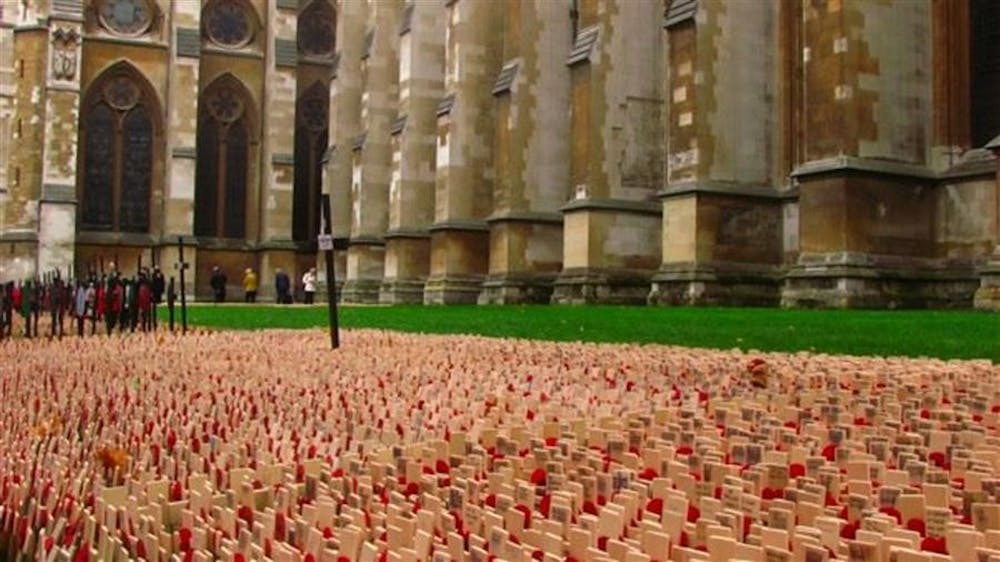While the U.S. honors all soldiers who have served in the armed forces with Veterans Day, citizens in the United Kingdom, France and Belgium celebrate Remembrance Day – also known as Poppy Day or Armistice Day.
Commemorating the end of World War I with the signing of the Armistice, Remembrance Day includes two minutes of silence at the 11th hour of the 11th day of the 11th month, the official time at which the Armistice became effective in 1918.
In Britain, it is tradition to remember the fallen by wearing a poppy on one’s jacket, usually on the lapel closest to the heart. Wreaths of poppies are also placed on tombs and memorial statues.
The story of the poppy comes from a famous poem by Canadian Lt. Col. John McCrae, “In Flanders Fields,” in which he writes of his experiences in the war following the death of his best friend in Flanders. The famous poem begins with the lines: “In Flanders fields the poppies blow / between the crosses, row on row.”
Following the bloody battles, the land was completely devastated, and small crosses marked the graves of the many soldiers in the fields. In the sea of mud and death, the only thing that survived were the poppies, whose seeds rest in the soil until the ground is disturbed, only blooming when the earth has been uprooted.
The vivid red color of the flowers is appropriate for remembering the bloodshed in the battle. Thus, the poppy has served as a national emblem of remembrance in England since 1921.
The poppy wreaths and pins are usually sold at the end of October and beginning of November, with proceeds benefiting the Royal British Legion. Some people begin wearing their poppies Nov. 1, while others choose to wait a week later for Remembrance Sunday.
This year on Nov. 11, a special service at Westminster Abbey led by the Queen marked the “passing of a generation” as the three of the last British veterans of the “lost generation” passed away this year: Bill Stone, age 108; Harry Patch, age 111; and Henry Allingham, age 113.
At age 108, Claude Choules is now the last surviving British veteran from World War I and one of only three surviving WWI veterans in the world.
In addition to honoring the soldiers who fought in World War I, remembrance ceremonies paid homage to British soldiers who have served the nation in all major conflicts, including the five British soldiers who were recently killed in Afghanistan, making this year “Britain’s bloodiest since the Falklands,” according to a Daily Mail report.
In Remembrance, wear a poppy

Get stories like this in your inbox
Subscribe



